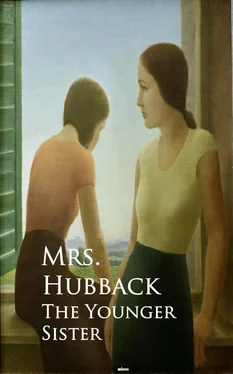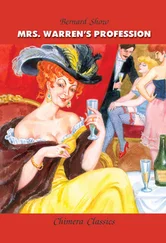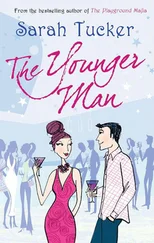Her own curtsey was as stiff and reserved, as if she had been taking lessons of Mrs. Edwards; and she resumed her seat without feeling the slightest inclination to converse herself, and being almost displeased with Elizabeth for the easy manner in which she allowed, or perhaps encouraged, Tom Musgrove to address her. Lord Osborne's visit was certainly meant for Emma, for he placed himself near her, and sat some minutes with his eyes fixed on her countenance, until she began to think he meant to preserve the same conduct in her father's house, as he had done at the ball.
At length, however, he spoke:
"It's a beautiful morning; ain't you going to walk to-day?"
"No, my Lord," replied she quietly, raising her eyes from her work, "I think it is too dirty!"
"You should wear boots," said he, "nankeen with block tops, look very nice, when a woman has a pretty ankle."
She had nothing to object to his taste, and did not reply.
"Do you ride?" continued he.
"No, my lord."
"Why not? every woman should ride; a woman never looks so well as on horse-back, well mounted, and in a handsome habit—you
should
ride—don't you like it?"
"There are, sometimes, other impediments, my lord, besides want of taste, even to so becoming an amusement," replied Emma, gravely.
"Eh? I don't understand," resumed he, "what prevents you?"
"I have no horse," replied Emma, thinking
that
the shortest way of finishing the subject, and reducing it to the level of his capacity.
"Then your father should keep one for you," observed he.
"My father cannot afford it," said Emma, decidedly; "and I have no wish to act in a way inconsistent with our circumstances."
"Poor is he? how uncomfortable!" said Lord Osborne, "why, what's his income, do you suppose?" continuing in the tone in which he would have questioned a day labourer as to his wages.
"It is a point upon which I never thought myself entitled to enquire," she replied, drawing herself proudly up, and speaking in a tone not to be misunderstood.
Lord Osborne looked at her with surprise, which was gradually converted into admiration at the beautiful effect of the colour which dyed her cheek as she spoke. An idea crossed his mind that, perhaps, he had not been sufficiently civil, and he tried to soften his voice, and put on a more winning manner.
"The hounds meet next Monday about a mile from here, at Upham—will you not come and see them throw off. It's a pretty sight."
"I do not think it will be in my power, my lord."
"I wish you could—did you ever see it?"
"Never."
"Well, you cannot imagine how gay it is; we have such a capital breakfast always at Upham Lodge; then the scarlet coats round the edge of the cover; the horses—the talking and laughing, the ladies who drive over to see us—though I often think them rather a bore—then the great burst when the dogs do find; and off they go away, and we after them, and forget every thing in the world, except one wish, to be in at the death. You cannot think how exciting it is. Do come."
"Thank you, my lord; but I must be satisfied with your description. I cannot accept your invitation."
"Perhaps you are afraid of the cold; my sister caught a dreadful cold one day, when she came in an open carriage, and it was wet; are you thinking of that?"
"No, for I did not know it before."
"Didn't you? She was ill a month; I was monstrous sorry for her—for you see it was partly my fault; I persuaded her to come; I don't know how it is. I rather like to have her with me—some men don't."
Emma could hardly suppress a smile at this eloquent demonstration of his fraternal affection. She began, however, to think that if Lord Osborne liked his sister there might be some good in him; which, before, she had been inclined to question. The gentlemen sat long, although Tom Musgrove, at least, must have been perfectly aware that he was encroaching on their dinner hour; and Emma was growing exceedingly weary of the looks of Lord Osborne, who sunk into repeated fits of silence, which were interrupted by abrupt and disconnected questions or observations. At length, they were all roused by the maid servant, who, putting her head into the half-opened door-way, called out:
"Please ma'am, Master wants to know why he beant to have any dinner to-day!"
This very unmistakeable announcement, brought a deep blush to Elizabeth's cheek, who, interrupting her chat with Tom Musgrove, said:
"Very well, Jenny, I hear."
The gentlemen now rose to go, and, to Emma's great relief, took leave; Elizabeth calling briskly after the maid, as she was shewing them out, to tell Nanny to take up the fowls immediately.
"Well," said she, drawing a long breath when the room was once more quiet, "what are we to think of this? I wonder whether Lord Osborne saw the knife-tray? I hope he did not notice, or what he thinks of us dining at this hour!"
"I must say, I think it was taking an unwarrantable liberty," cried Emma, "calling in this way—very impertinent and disagreeable—though he is a lord, what right has he to intrude on us?"
"Do you think so, Emma? well, it did not strike me so—I was only hoping he would not notice the table-cloth or the steel forks. I know they have silver ones every day at Osborne Castle. I wish Jenny had not began putting out the things, or had not brought that tiresome message."
"He never called here before, why should he come now without excuse or apology?" persisted Emma.
"Why, to see you to be sure—and very good use he made of his eyes. Now really, Emma, you ought not to quarrel with him, for it is evidently admiration of you that brings him here."
"I do not care for admiration without respect, Elizabeth, and I hope the visit will not be repeated."
Her father's opinion quite coincided with hers, when he came to hear of the visit in question. There had been no acquaintance between old Lord Osborne and himself, he observed, and he would have none with his son, of whom he had formed a very moderate opinion; and as to Tom Musgrove, he was always coming when he was not wanted, and scampering after Lord Osborne in an absurd way: what right had such a Tom Fool as he to interfere with his dinner hour, or cause the roast fowls to be overdone.
CHAPTER IV.
The approach of Christmas week, was to bring the great event of Elizabeth's year—namely, a visit from her eldest brother and his wife, who were to return with Margaret and spend a few days at Winston. Elizabeth evidently looked up very much to Mrs. Robert Watson, who, she assured Emma, had been educated in a very superior way—a London boarding-school—her father had been very wealthy, and her mother most genteel; she had, too, an uncle, who was a knight, in London, and quite a distinguished person there—so that altogether, Jane was an honor to the family, whilst her talents and taste alone were sufficient to procure distinction in the first circles.
Emma was uncertain, but most anxious to like her sister-in-law; she felt half amused and half doubtful, whilst Elizabeth enumerated all the advantages of Robert's grand marriage. However, she exerted herself with the greatest good-will, to assist in the numerous preparations necessary on such an occasion. Nothing was too good for Jane—though Emma could hardly help wondering to see that the drawing-room was to be used—the furniture and mirror uncovered—the best china produced, and all the plate had out to grace their visitors. For a brother and sister, she fancied this would have been unnecessary; and she wished, with a sigh, that there had been more consistency between their every-day life, and the appearance they were now expected to make.
Elizabeth was one of the worst housekeepers possible; with a little more system and management, her father's income might have produced a respectable appearance at all times; but as there was not the smallest attention given by Mr. Watson to his household affairs, beyond paying the bills, and finding fault with the dinners, everything was in confusion from one week to another. Elizabeth had much of the easy, good-natured indolence of her father, but was spurred up by necessity to unwilling exertions; and ill seconded by her untidy maid servants, who knew she was too good-natured to scold; she was always excessively put out of her way by preparations for company. Her total want of arrangement, and the facility with which she was diverted from one object to another, made her twice as long as necessary in every occupation. Thus, for instance, it was in vain that she had promised Emma to return to the china closet, and tell her which articles would be wanted from thence; for happening to see Jenny awkwardly attempting to clean some plate, she stayed so long to show her how to do it, that Emma, in despair of her return, was induced to seek her, and with difficulty persuaded her to resume her occupation up stairs.
Читать дальше












